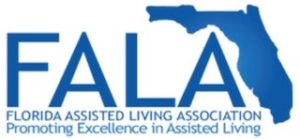
The Florida Assisted Living Association (FALA) announced today findings from a study, which found that Florida’s more than 3,000 ALFs are facing challenges in collecting revenue and finding skilled workers to fill vacancies. The new study completed by the University of Florida Bureau of Economic and Business Research (BEBR) has found that as the need for ALF services in Florida increases so are the cost and challenges faced by the ALF providers. Fifty-one percent of providers surveyed said they experienced bureaucratic processes with Medicaid health plans that resulted in a loss of revenue for their assisted living facility.
“If Florida wants to remain an attractive place for our increasing elderly population, then we must invest in making sure people have access to quality health care in our state,” said Shad Haston, CEO of FALA. “This study raises awareness of the burden being placed on our ALF communities and will hopefully encourage our legislators to take the appropriate course of action.”
FALA commissioned BEBR to conduct a study examining the cost of Florida’s ALFs incur to provide care, the challenges they face when collecting revenue, and to gather opinions from the general population about long term health. To complete the study, BEBR developed and administered both an online and a phone survey of ALF providers and Florida adults.
Among the findings of the study are:
- During 2018, 72.5% of ALFs in Florida had trouble finding skilled workers to fill vacancies. In most cases, facilities raised wages or increased benefits to attract/retain good employees, particularly, direct care employees.
- More than half of the facilities reported having experienced a loss of revenue due to bureaucratic processes with Medicaid health plans.
- More than one-third of the facilities were not able to collect revenue because the administrative costs involved were too high. The main sources of revenue loss reported were Medicaid LTC Program health plans and Medicaid (MMA) Program.
- The cost of liability insurance, property taxes, and utilities increased between fiscal years 2016 and 2017. Property taxes paid increased by 140 percent, and liability insurance premiums and utility costs increased by 27.6 and 14.1 percent respectively.
- Nearly three‐fourths of the survey respondents obtained a loan in the last two years. Although more than half had multiple reasons for obtaining a loan, the most common reason was to comply with the new power generator rule.
- Seventy-six percent (76%) of the general public agreed that the State of Florida should increase the budget for the Medicaid Long Term Care Program when more money is needed to pay for ALF care of low-income seniors.
For access to the study, visit fala.org/ALF-Cost-of-Care-Study.html.
About the Florida Assisted Living Association
The Florida Assisted Living Association (FALA) is the oldest assisted living association in the state. It has been providing advocacy, education, and regulatory support for its members for over 25 years. The mission of FALA is to promote the improvement of all assisted living facilities in the state of Florida. Today, FALA is the largest state association representing assisted living facilities and adult family care homes. For more information about the Florida Assisted Living Association, visit fala.org.
